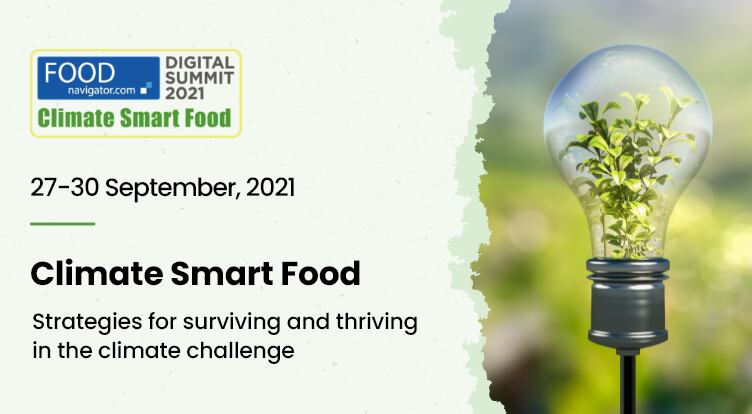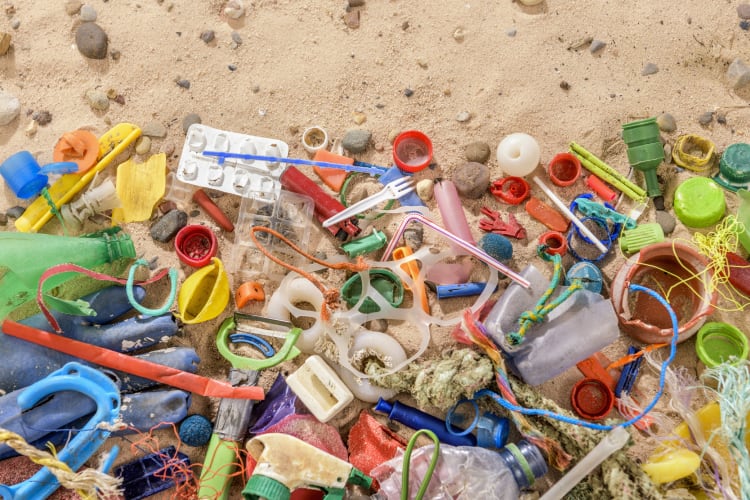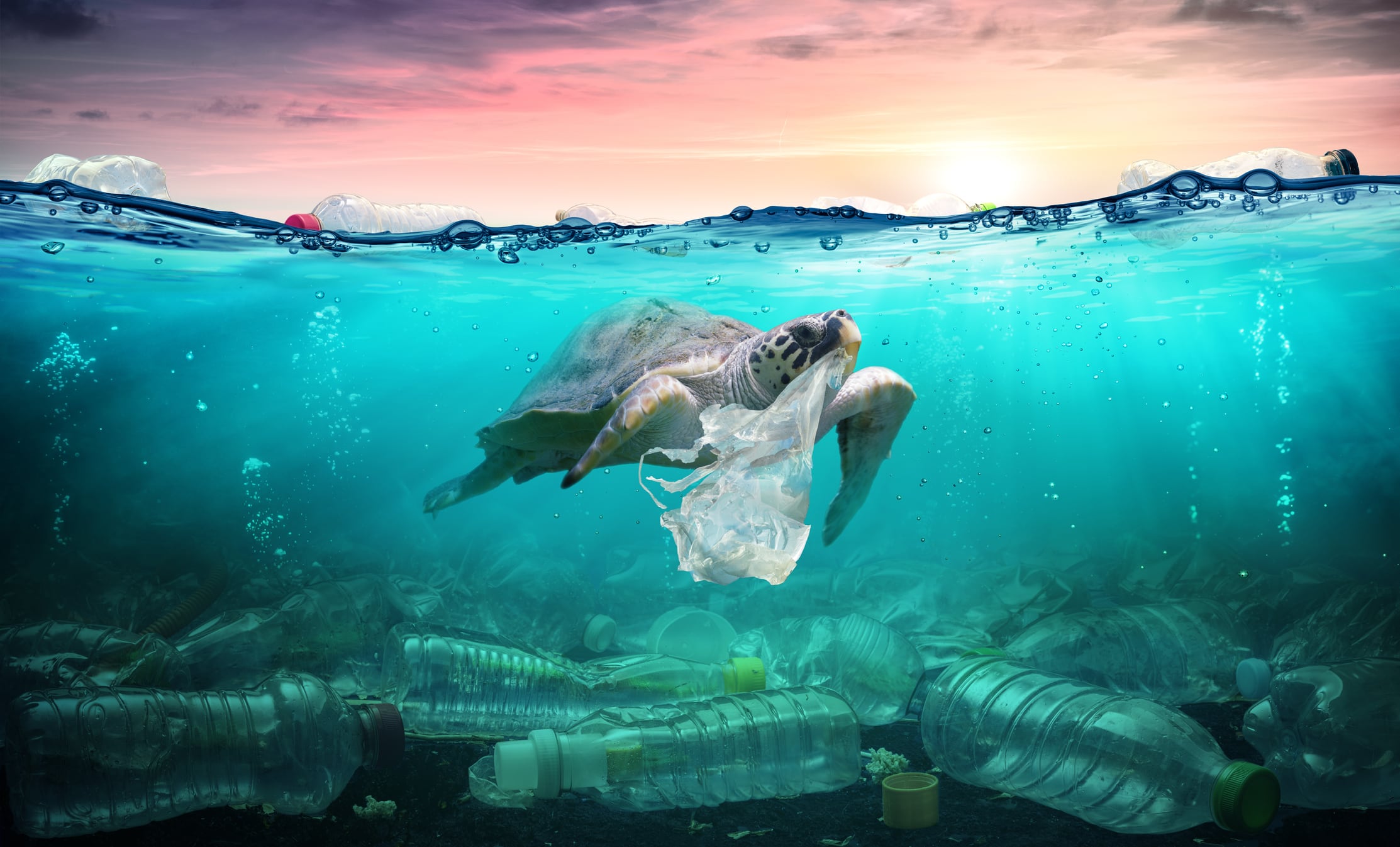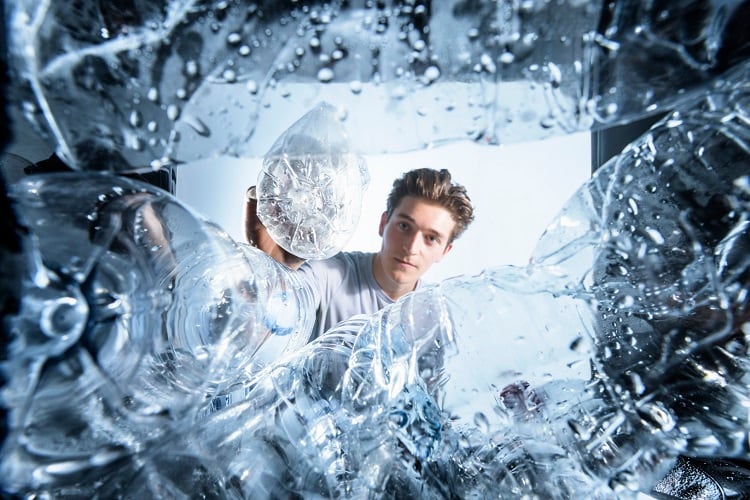One of the challenges facing beverage companies as they work to move their packaging towards fully recycled material is a lack of exactly that, food grade recycled polyethylene terephthalate (rPET). With plastic waste streams largely unsegregated, the availability of recycled food grade plastic – which meets distinct standards compared to plastics used in other consumables – is not keeping pace with demand.
Water business evian is partnering with Loop Industries to leverage its ‘transformational technology’ to address this issue.
Loop has developed a process that allows no- and low-value PET plastics, those that would otherwise often go to waste, to be recycled ‘endlessly’ into new, virgin-like PET plastic. The collaboration between Loop and evian has spanned four-years. During this time, Loop Industries worked on ‘perfecting its technology’ for commercial production on a global scale.
The result is ‘evian Loop’ bottles, the first commercial production of consumer beverage bottles using Loop’s technology, Founder and CEO Daniel Solimita revealed. Solimita described the development as an ‘important milestone in the commercialisation of our technology’.
“We are particularly proud that this milestone is being achieved in partnership with iconic global beverage brand evian. With the completion of our small-scale production facility in Terrebonne Quebec, we are now producing commercial volumes of PET resin for global brand companies, using local waste plastic that would otherwise not be recycled," he said.
The scale-up now expects expansion to kick up a notch as it begins the rollout of Loop manufacturing facilities in North America, Asia and Europe, including a recently announced strategic partnership with South Korean chemicals group SK Geo Centric.
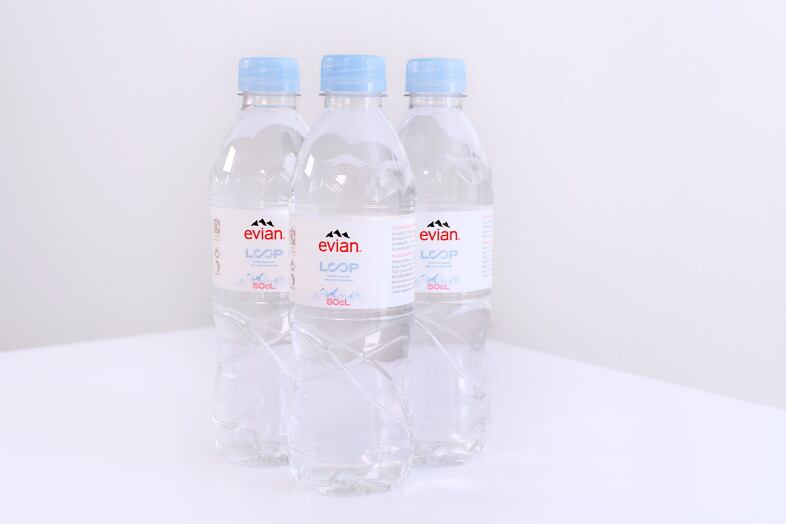
‘A breakthrough new technology’
Loop’s innovation could be game-changing for plastic pollution, evian believes, because the process supports a ‘continuous loop’ for recycling at large scale. Unlike other approaches, all types of PET plastic waste can be recycled into food grade materials– from gym bags to flip flops and even ocean, coloured and opaque plastics and polyester fibres. So what’s the innovation behind Loop’s technology?
The process breaks down plastic waste into its base building blocks, or monomers. These are then purified and repolymerized into Loop’s trademark protected PET plastic.
“Loop’s innovative technology decouples PET plastic from fossil fuels and enables a continuous loop for recycling at large scale, transforming all types of PET plastic and polyester fibre waste into high quality resource,” evian VP of marketing Shweta Harit explained.
“Using low energy depolymerization technology, waste PET plastic and polyester fibre is completely broken down into its base building blocks at low heat and no added pressure. The monomers are then purified and repolymerized into Loop PET plastic which is suitable for use in food-grade packaging,” she told FoodNavigator.
Significantly as the business looks to scale, Loop’s process doesn’t face time-consuming and expensive regulatory barriers. “Loop’s process creates virgin-quality PET plastic that meets very stringent FDA and European requirements for use in food-grade packaging. Loop’s Technology uses materials that are readily available and used in other industrial processes daily," Harit explained.
While the tech clearly helps address the plastic pollution problem and supports the circular economy, it’s also important that solutions don’t create unintended consequences. Loop has therefore completed a lifecycle analysis and, Harit told us, the results are positive.
“As this is a breakthrough new technology, Loop Industries has conducted a preliminary environmental analysis (life cycle analysis) which shows a significant carbon emissions reduction when compared to virgin PET… Loop’s elegant process achieves full depolymerization with low energy input. It allows more forms of PET waste to be recycled, enabling to keep more bottles out of nature and reaching more circularity while shifting away from fossil fuels," the evian executive noted. "Almost all of the chemicals used in Loop’s process are recycled and reused,” she added.
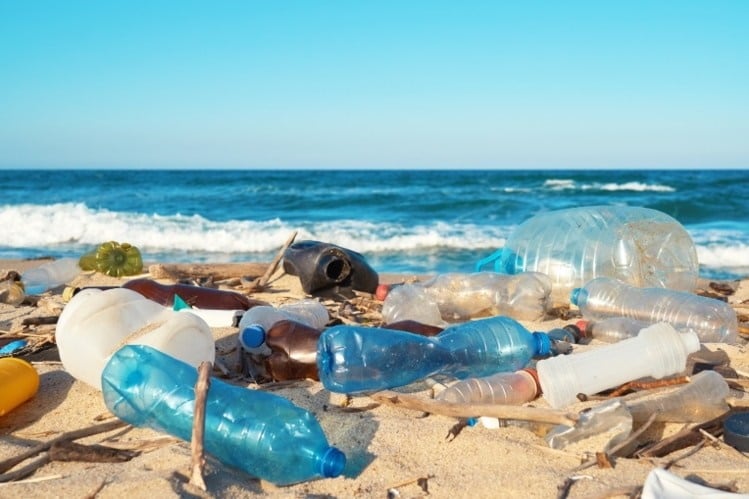
Innovation driving evian's 100% rPET ambition
In 2018, evian committed to using 100% recycled PET in all its bottles by 2025. Innovations like this are an important part of the water brand’s roadmap to achieving this ambition.
“We’re partnering with different technology companies and partners, one of which is Loop Industries. We’re excited about our new prototype utilising Loop Industries’ technology and plan to roll out bottles at commercial scale in South Korea in 2022, with the goal of launching in other markets in the future,” Harit detailed.
The water brand believes this kind of technological innovation is one part of the toolkit that will advance its 2025 commitment. The company also supports ‘effective and efficient waste management system’s that ‘drive circularity and help eliminate packaging waste’.
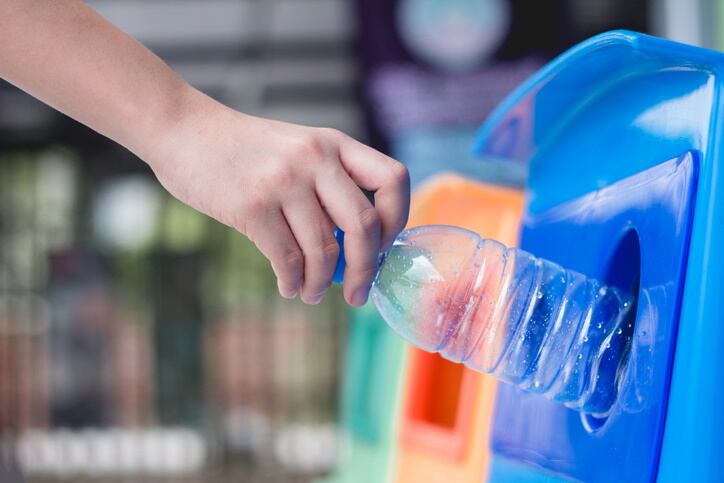
Harit says there isn’t a ‘one-size-fits-all solution’ for what these systems should look like. But the company believes they should be developed in partnership with all stakeholders, effectively reintegrate waste into the economy to prevent plastic pollution, make efficient use of resources and ‘be drivers of social inclusion’.
“In Danone packaging policy, we commit to helping meet or go beyond the collection targets set by regulators – for example reaching at least 90% beverage bottles collection in the EU by 2025. This includes supporting EPR (Extended producer responsibility) and / or DRS (Deposit Return Systems) systems when they are the most effective and efficient for specific countries, regions, or cities,” she elaborated.
“Keeping plastic out of nature and within the circular economy is a key priority for evian as we continue to work to become part of the solution to tackle environmental issues."
This latest announcement follows a number of product innovations from evian as part of its circularity journey, including Label Free, Bottles made from Bottles, and most recently (re)new. The (re)new dispenser concept was launched in ‘several key markets’ earlier this year and consists of a collapsible bubble that contains 60% less plastic than a typical 1.5 litre water bottle, whilst holding nearly 3 times the volume.
Innovative approaches to plastics is just one of the hot topics we'll be discussing next week at Climate Smart Food, when we'll be joined by start-ups innovating in the plastic space as well as the likes of Coca-Cola who will be discussing their own 100% rPET aims.
With the food system contributing around one-quarter of greenhouse gas emissions today, it is clear that business-as-usual is not an option. So what needs to change if we are to transition towards truly sustainable nutrition? Join us to find out.
For your last chance to register for free, click HERE, or to view details of our full programme, click HERE.
